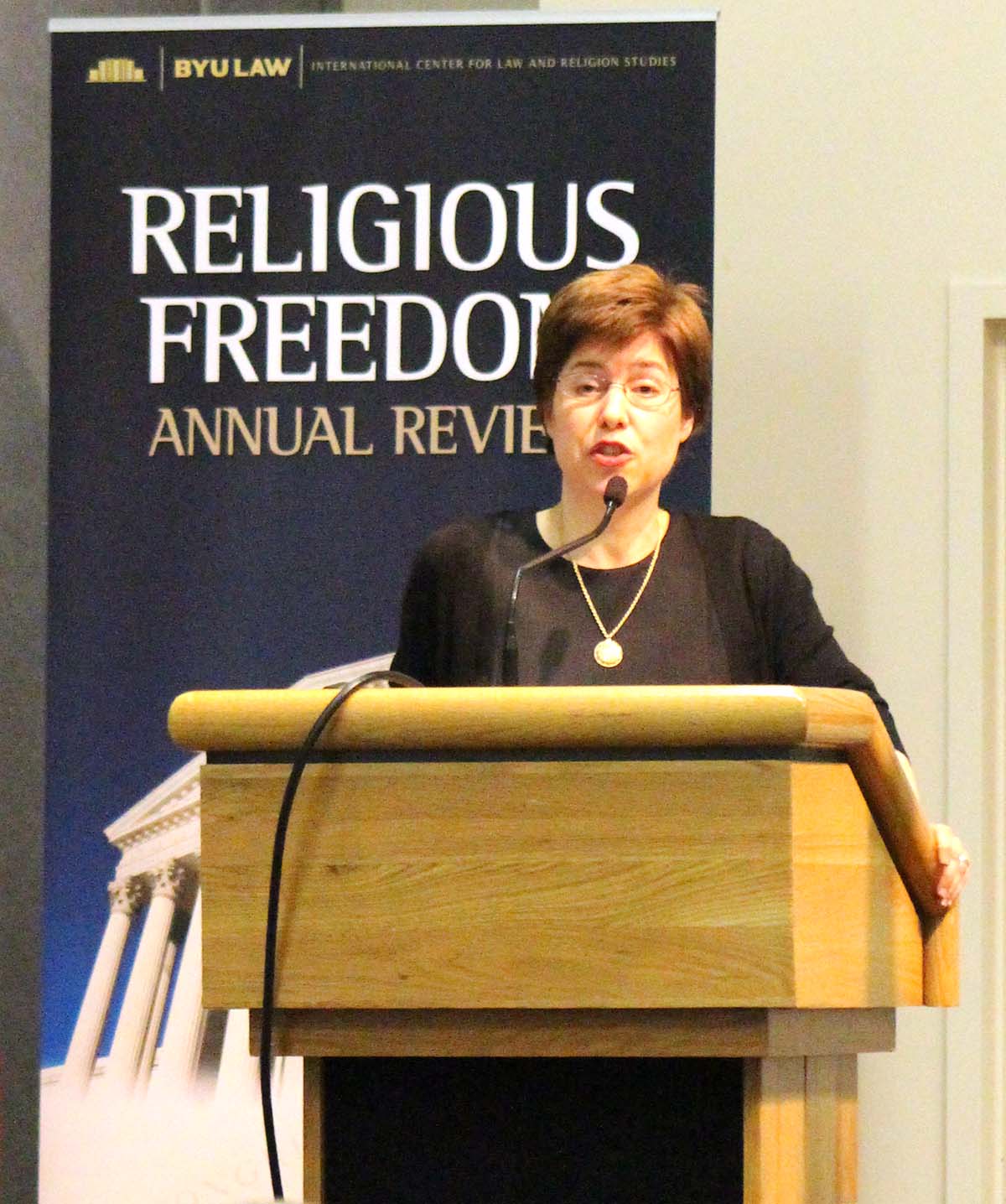Workshop: How Broad is Religious Freedom? Constitutional & Legislative Protections – Melissa Rogers

by Dianna Odell, 2017 ICLRS Student Fellow
Melissa Rogers, Nonresident Senior Fellow in Governance Studies of the Brookings Institution and former Executive Director of the White House Office of Faith-Based and Neighborhood Partnerships and Professor Frederick Gedicks, Guy Anderson Chair & Professor of Law of BYU Law School, spoke on Thursday, July 6 on “How Broad is Religious Freedom? Constitutional and Legislative Protections.”
Gedicks opened the session by discussing religious liberty generally, focusing on both freedom for religion and freedom from religion. Professor Gedicks distinguished between the “Private Religious Space,” which is a core space to protect freedom for religions with the “Public Secular Space,” another core space that provides protections from religion. Professor Gedicks emphasized the importance of allowing both the private religious space and the public secular space ample “elbow room” to exercise their freedoms so that they can coexist together.
Melissa Rogers framed her remarks by focusing on the Trinity Lutheran Church v. Comer case as recently decided on by the Supreme Court. In summarizing the case, Rogers emphasized the freedom that States do, or do not have, in giving aid to religious and non-religious entities. The ruling from the Supreme Court declared that faith based organizations cannot be excluded from at least certain public benefits simply because of their religious affiliation and that excluding houses of worship in the way in which Trinity Lutheran Church was excluded was unjustified discrimination. Rogers pointed out that the 7-2 ruling from the Supreme Court is somewhat misleading as the court majority fractured on the scope of the decision. In the wake of this decision, Rogers anticipates a flood of litigation in the lower courts as to what this decision may mean for future interactions between church and state.
Rogers further discussed the Establishment Clause and the protections that it provides to both Church and State. The establishment clause is a limit on government involvement of religion that protects and advances individual rights. While some believe that the establishment clause only serves as a protection for non-religious people, it has the effect of protecting faith groups as well: it protects the integrity of faith from government involvement.
In her concluding remarks, Rogers quoted from John Courtnay Murray pointing out that constitutional clauses are not “invested with the sanctity that attaches to dogma, but only with the rationality that attaches to law…they are not articles of faith, but articles of peace”. Whatever we believe, we can look to these clauses as article of peace.